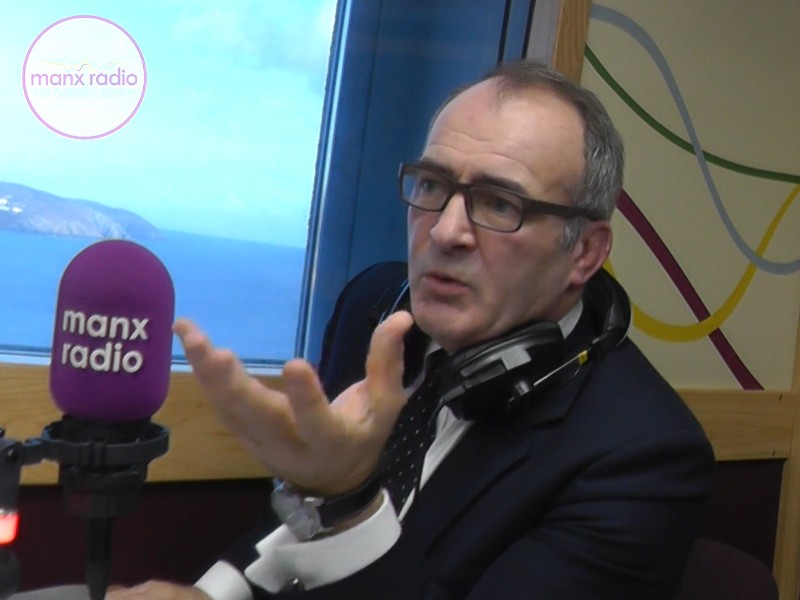
Douglas Grant says small businesses are key to economic resurgence amid global volatility
The Chief Executive of Isle of Man-based Conister Bank has written to the UK Chancellor ahead of the Autumn Budget Statement, calling for urgent and targeted support to unlock the growth potential of Britain’s small and medium-sized enterprises (SMEs).
SMEs are typically defined as businesses with fewer than 250 employees. They make up over 99 percent of all UK businesses, playing a key role in employment, innovation, and regional growth.
In an open letter addressed to Chancellor Rachel Reeves, Douglas Grant highlighted research from parent company Manx Financial Group which found nearly one in three SMEs in the United Kingdom have had to halt or suspend parts of their operations due to a lack of finance. The study also found that one in 10 businesses had been unable to access funding despite actively seeking external capital.
According to Mr Grant, growth expectations among SMEs have weakened sharply, with 38 percent of firms now expecting stagnant performance over the next year – up from 25 percent just 12 months ago. Nevertheless, SMEs remain optimistic about their potential, with many believing they could achieve growth of up to 13 percent in the next year if the right funding and support mechanisms were in place.
In his letter, Mr Grant laid out five specific policy recommendations for the UK government to consider:
Diversify trade markets and manage currency risks
Mr Grant called for government-backed trade missions, export credit schemes, and market access programmes to help SMEs shift focus towards alternative markets including the EU, Southeast Asia, Africa, and Latin America. He also urged greater availability of hedging tools and multi-currency banking to shield businesses from exchange rate volatility.
Strengthen supply chains and digital scalability
Against the backdrop of continued disruption to global supply chains and tensions between the United States and China, he proposed incentives for nearshoring (relocating supply chains to closer countries to reduce risk and improve efficiency) and multi-sourcing, as well as investment in AI-powered logistics systems. He further suggested that scalable digital models and enhanced cybersecurity would be essential for UK firms to succeed as global digital exporters.
Unlock finance and investment for growth
With borrowing costs and lending criteria continuing to restrict access to capital, Mr Grant advocated reforms to broaden access to government-backed loans and speed up application processes through the use of digital underwriting. He also called for the extension of full capital expensing to green and digital infrastructure and the introduction of an investment super-deduction.
Modernise tax and pension frameworks
Describing current business rates as outdated, Mr Grant urged the Chancellor to consider alternatives such as land value taxation or targeted reliefs aimed at innovation and decarbonisation. He also proposed that defined contribution (DC) pension funds be mobilised to invest in UK infrastructure, scale-ups, and growth equity, and recommended enhancements to R&D tax credits, particularly in AI, biotech, and clean technologies.
Launch a national digital skills accelerator
To address skills shortages in key growth sectors, the Conister CEO proposed a nationwide training initiative focused on technical and digital skills, AI literacy, and green industries. He recommended that such programmes be co-designed with employers to ensure immediate relevance and impact.
Mr Grant concluded his letter by stressing the economic significance of SMEs, which contribute nearly half of all private sector turnover in the UK.
“Their stagnation is Britain’s stagnation, but their growth is Britain’s recovery,” he wrote.
He encouraged the Chancellor to take ‘bold’ action in the upcoming budget to convert economic uncertainty into an opportunity for national renewal, and said Conister Bank stands ready to support efforts that put SMEs at the forefront of the UK’s economic strategy.
Manx Radio has approached the UK government for comment.
You can listen to the full interview here:


 Chief minister warns healthcare spending trajectory is unsustainable without reform
Chief minister warns healthcare spending trajectory is unsustainable without reform
 Closure of High Street Port St Mary
Closure of High Street Port St Mary
 New Costa Coffee store opens on Peel Promenade
New Costa Coffee store opens on Peel Promenade
 Guinness strike won't affect Island's supply
Guinness strike won't affect Island's supply
